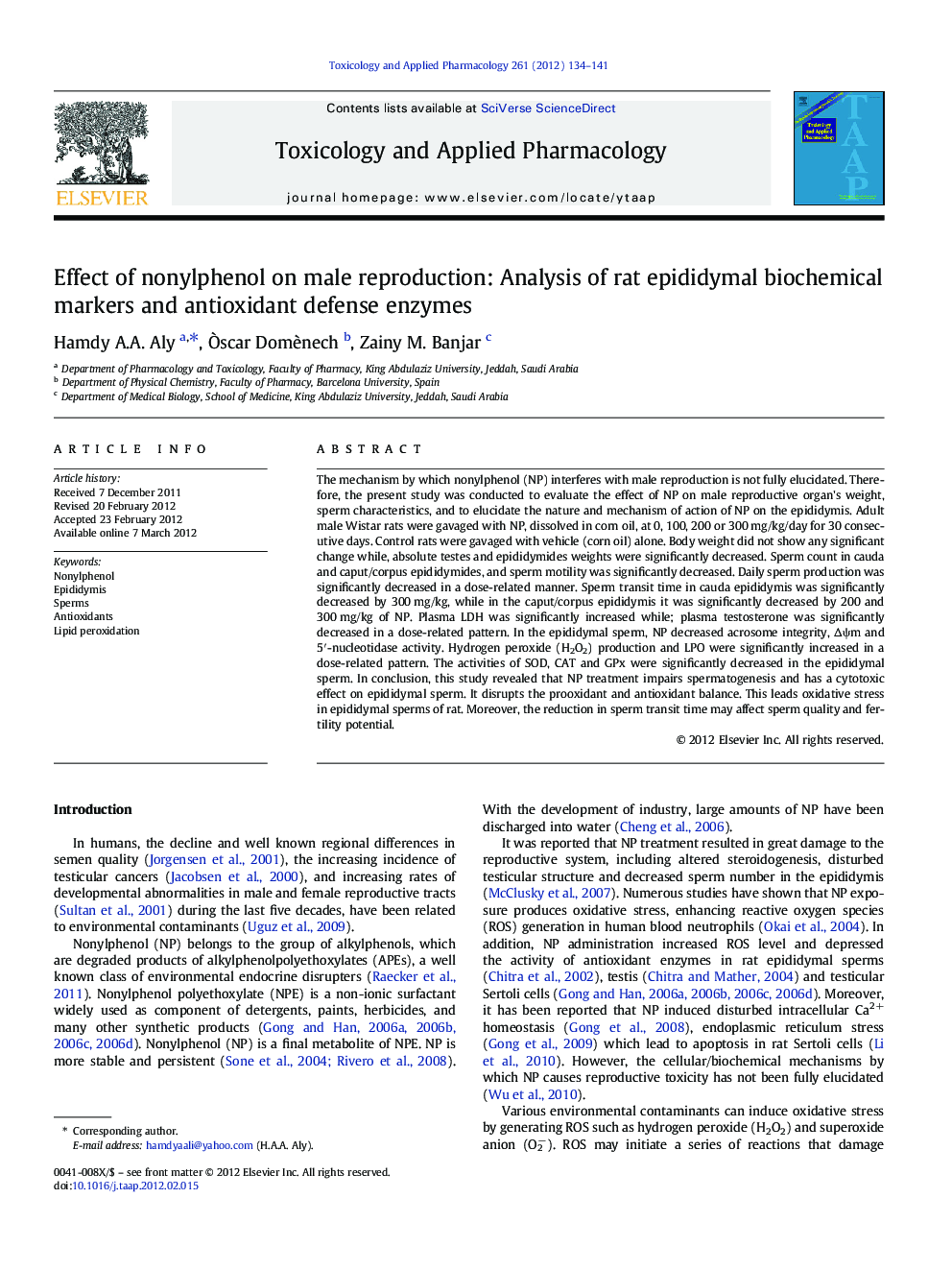| Article ID | Journal | Published Year | Pages | File Type |
|---|---|---|---|---|
| 2569016 | Toxicology and Applied Pharmacology | 2012 | 8 Pages |
The mechanism by which nonylphenol (NP) interferes with male reproduction is not fully elucidated. Therefore, the present study was conducted to evaluate the effect of NP on male reproductive organ's weight, sperm characteristics, and to elucidate the nature and mechanism of action of NP on the epididymis. Adult male Wistar rats were gavaged with NP, dissolved in corn oil, at 0, 100, 200 or 300 mg/kg/day for 30 consecutive days. Control rats were gavaged with vehicle (corn oil) alone. Body weight did not show any significant change while, absolute testes and epididymides weights were significantly decreased. Sperm count in cauda and caput/corpus epididymides, and sperm motility was significantly decreased. Daily sperm production was significantly decreased in a dose-related manner. Sperm transit time in cauda epididymis was significantly decreased by 300 mg/kg, while in the caput/corpus epididymis it was significantly decreased by 200 and 300 mg/kg of NP. Plasma LDH was significantly increased while; plasma testosterone was significantly decreased in a dose-related pattern. In the epididymal sperm, NP decreased acrosome integrity, Δψm and 5′-nucleotidase activity. Hydrogen peroxide (H2O2) production and LPO were significantly increased in a dose-related pattern. The activities of SOD, CAT and GPx were significantly decreased in the epididymal sperm. In conclusion, this study revealed that NP treatment impairs spermatogenesis and has a cytotoxic effect on epididymal sperm. It disrupts the prooxidant and antioxidant balance. This leads oxidative stress in epididymal sperms of rat. Moreover, the reduction in sperm transit time may affect sperm quality and fertility potential.
► The nature and mechanism of action of NP on rat epididymis were elucidated. ► NP decreased sperm count, motility, daily sperm production and sperm transit time. ► NP decreased sperm acrosome integrity, Δψm and 5′-nucleotidase activity. ► Plasma LDH was significantly increased & testosterone was significantly decreased. ► NP induced oxidative stress in epididymal sperm.
